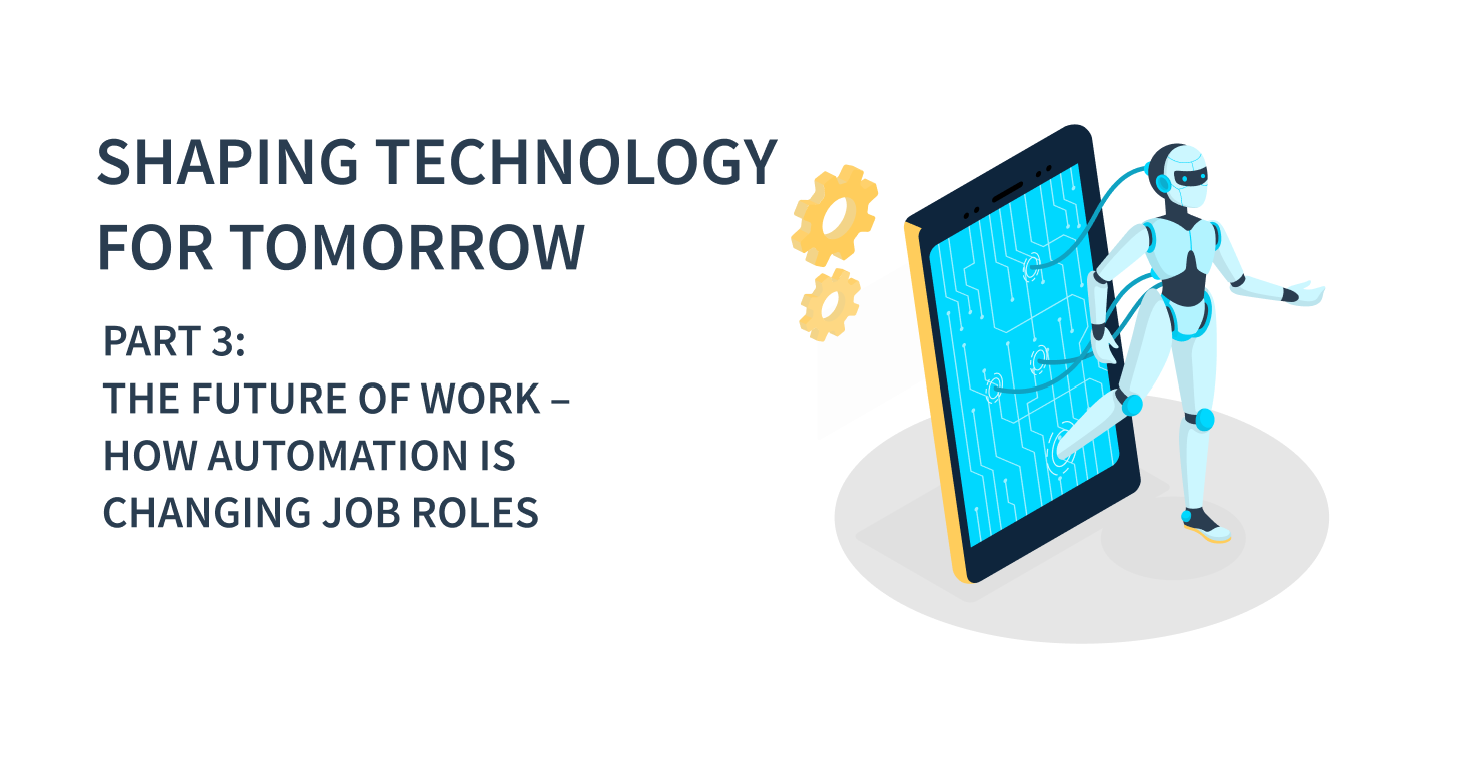
Shaping Technology for Tomorrow, Part 3: The Future of Work – How Automation is Changing Job Roles
Automation has been a transformative force in industries worldwide, redefining how we work and what work means. As technology advances, it’s not just about machines taking over repetitive tasks—it's about reshaping job roles, enhancing productivity, and creating opportunities for innovation. This article explores how automation is influencing job roles and the strategies businesses can adopt to thrive in this evolving landscape.
The Evolution of Automation in the Workplace
Automation has moved far beyond assembly lines. Today, it powers everything from customer service chatbots to sophisticated AI-driven decision-making systems. While automation streamlines processes, its broader impact lies in enabling workers to focus on higher-value tasks that require creativity, strategic thinking, and problem-solving skills.
Redefining Job Roles: The Shift from Routine to Strategic
The integration of automation has led to a shift in job responsibilities. Roles once centered around routine tasks are now evolving to include strategic oversight and innovation. For example:
- Customer Support: Chatbots handle FAQs, allowing human agents to tackle complex customer queries.
- Manufacturing: Robots handle precision tasks, freeing engineers to focus on improving processes and designs.
- Data Analysis: AI processes raw data, enabling analysts to extract actionable insights.
New Opportunities and Emerging Roles
Automation isn't just about job displacement—it’s also about job creation. As technology evolves, new roles are emerging, such as:
- AI Trainers: Teaching AI systems to interpret and act on data accurately.
- Automation Specialists: Implementing and managing automation systems.
- Ethics Consultants: Ensuring responsible AI and automation practices.
Strategies for Adapting to Automation
To succeed in an automated workplace, businesses and professionals can focus on:
- Upskilling: Invest in training programs to equip employees with new skills for automation-enhanced roles.
- Collaboration: Foster a culture where humans and machines work together seamlessly.
- Adaptability: Stay flexible and open to evolving job functions and technologies.
Conclusion: Embracing the Future of Work
Automation is reshaping industries, but it’s also unlocking new potential for growth and innovation. By embracing change and investing in talent development, businesses and individuals can thrive in this evolving world of work. Automation isn’t just changing job roles—it’s redefining possibilities.
At MangoSoft, we’re passionate about helping businesses navigate technological transformation. Reach out to learn how we can support your journey toward automation-driven success.










